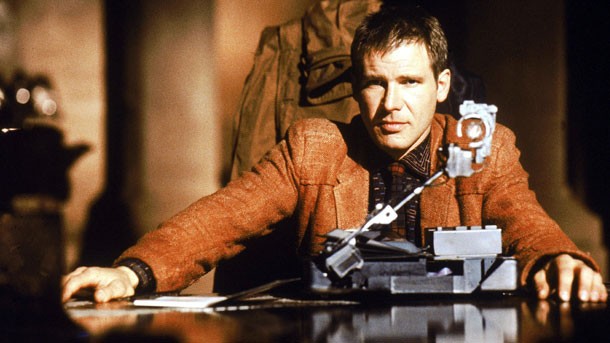Did Blade Runner Predict VR Empathy Games?

I've been playing a lot of Shadowrun Returns recently. The cyberpunk RPG adventure led me to investigate the Shadowrun universe, which was inspired heavily by Ridley Scott's Blade Runner film. I rewatched the film with Scott's commentary track, and he mentioned some of the vast differences between his film and the Phillip K. Dick book it's based on, Do Androids Dream of Electric Sheep? I decided it was time to finally read the important piece of cyberpunk/sci-fi history. Throughout my time reading the terrific story I caught myself thinking about the recently emerging empathy games genre, and here's why.
Empathy games are games designed not to be fun, but to let "players" walk a mile in the shoes of people in difficult situations. The gameplay attempts to show people what it's like to deal with challenging life circumstances they may be unaware of. In Depression Quest, you guide a clinically depressed protagonist through the doldrums of their seemingly hopeless life. In Cart Life a divorced mother operates a meager food cart to earn money so she doesn't lose custody of her daughter. Papers, Please puts you in the boots of a border guard who faces the moral dilemma of where privacy ends and security begins. These games aren't designed to have satisfying gameplay, but rather to help you empathize with the difficult existences other human beings face. It's a small, niche genre, but it feels like the beginning of something of cultural importance. Sure, you can read stories or watch videos about suffering people, but video games offer developers the power to make you play out a day in their lives.
So why did Phillip K. Dick's book bring this emerging genre to mind? Though it's not mentioned in Blade Runner, the religion of Mercerism plays a key role in Do Androids Dream of Electric Sheep?. Humans in Dick's post-apocalyptic metropolis have devices called empathy boxes in their homes. These tools let users jack-in Matrix-style to a enigmatic network that lets them experience the life of the modern prophet Wilbur Mercer. Mercer is an old man and Christ figure that is slowly walking up a mountain as unseen forces hurl rocks down at him. Users of empathy boxes feel these blows in the real world, and will bleed and become injured if Mercer is struck. All of users of the empathy boxes are tethered through a mysterious technology, allowing the world to share an empathetic bond with one another as they experience Mercer's plight. Spoiler for the book incoming. Later in the novel, the public learns that Mercer is a fraud. Their supposed messiah is a hired actor, and that users are actually seeing a synthetically created world when they use the device. Empathy boxes are windows into a man-made virtual world designed to let human beings feel empathy for the less fortunate. Remind you of anything?
With Empathy Games just beginning to make headlines and VR devices like the exciting Oculus Rift gaining traction, I can't help but wonder if Phillip K. Dick's fantastical invention isn't so far off. I don't imagine many folks are interested in losing blood while they play games, but physical feedback has been with gamers since the popularization of the N64's Rumble Pack. Phillip K. Dick's hover cars and synthetic owls may not be on the horizon, but maybe we'll see a prototype version of his empathy box sooner than we think.

Get the Game Informer Print Edition!
Explore your favorite games in premium print format, delivered to your door.
- 10 issues per year
- Only $4.80 per issue
- Full digital magazine archive access
- Since 1991









